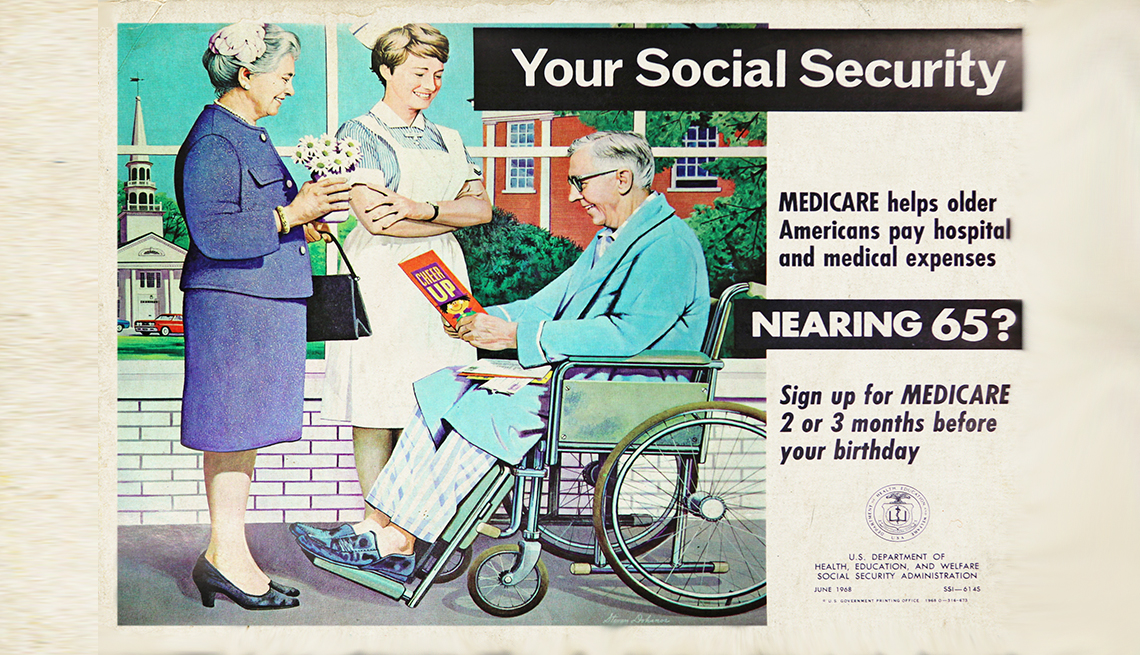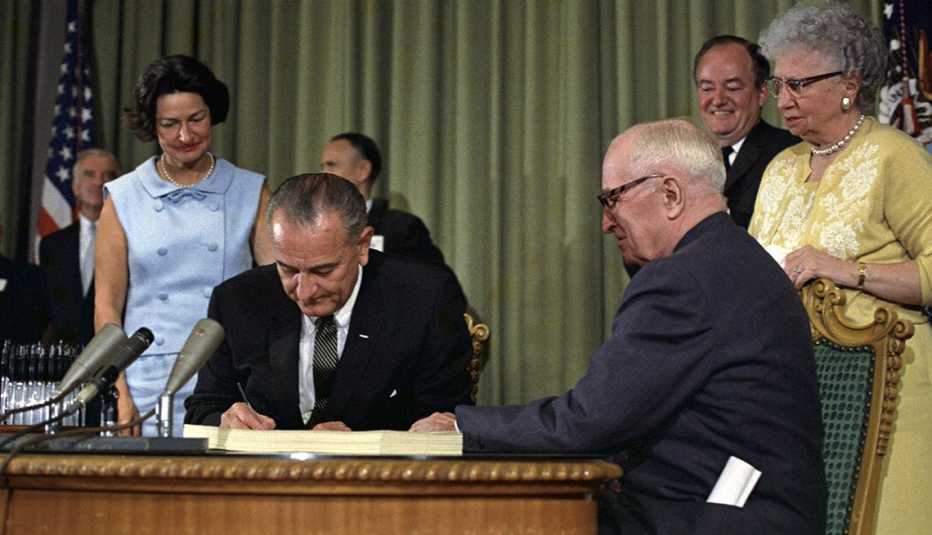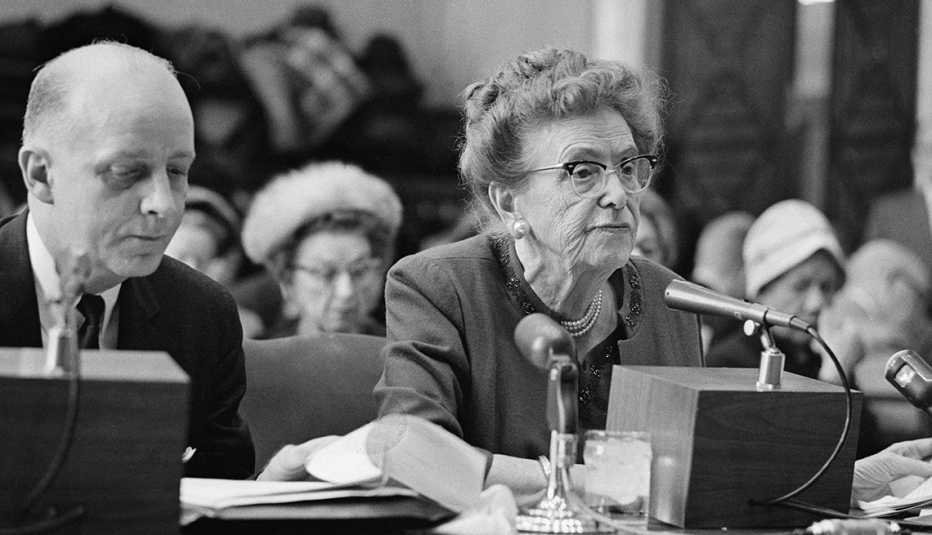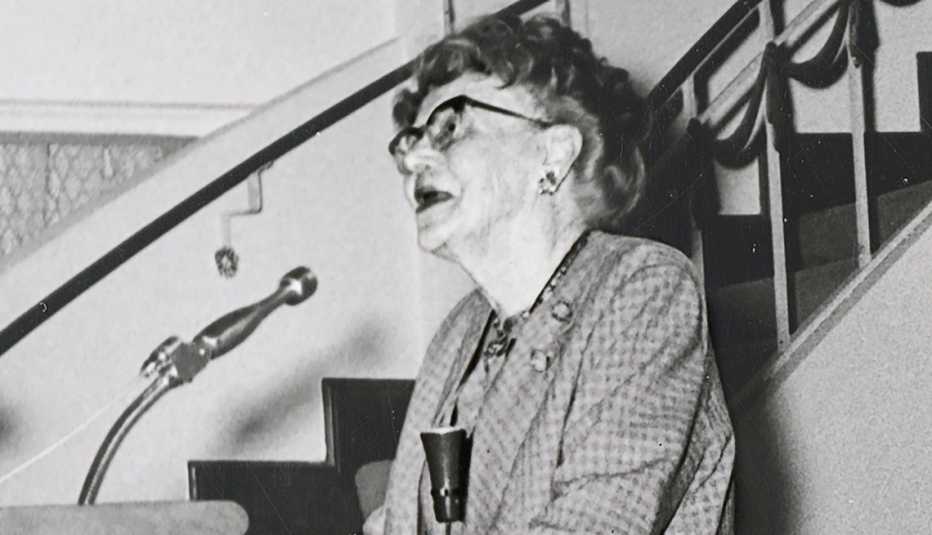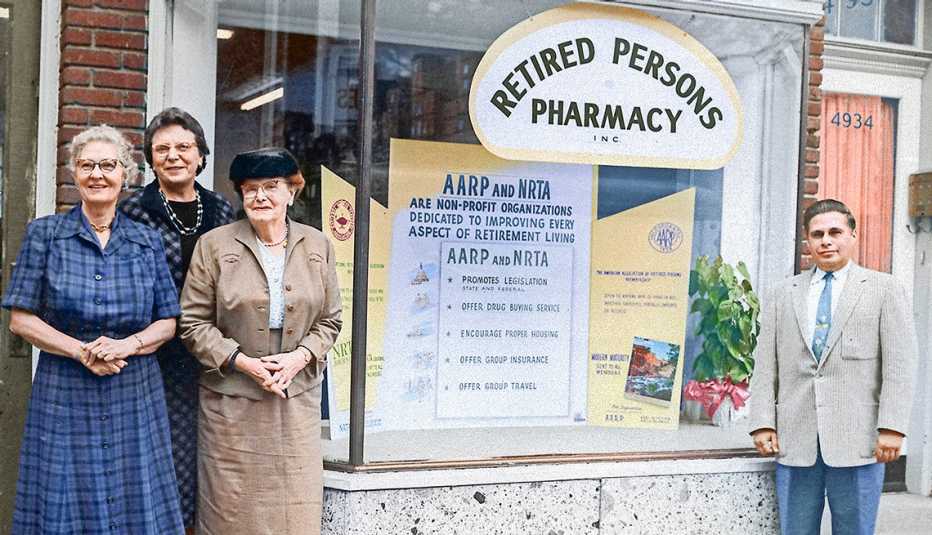Staying Fit
On July 30, 1965, President Lyndon Johnson signed the Social Security Amendments Act of 1965, the bill that created Medicare. Medicare is the federal health insurance program for all people age 65 and older, regardless of income or medical history, and for people under age 65 with permanent disabilities. It now covers more than 54 million Americans.
The idea of medical coverage for older Americans tied to Social Security had been discussed since the beginning of Social Security itself in the 1930s. It is said President Franklin D. Roosevelt considered a medical insurance component for Social Security but feared it would doom the prospects for getting Social Security through Congress.


AARP Membership— $12 for your first year when you sign up for Automatic Renewal
Get instant access to members-only products and hundreds of discounts, a free second membership, and a subscription to AARP the Magazine.
It wasn’t until 1952 that the idea for health insurance for Social Security beneficiaries began to receive serious discussion in Congress. And it wasn’t until 1957 that a bill by U.S. Rep. Aime Forand (D-R.I.) was introduced to provide hospital insurance for Social Security beneficiaries. Hearings were held in 1958, but there was strong opposition and no progress.
While AARP was founded after the campaign to create the program that eventually became Medicare had begun, the Association and its founder, Dr. Ethel Percy Andrus, would nevertheless play an active and important role in championing health insurance for older Americans and crafting Medicare into a successful program.
Dr. Andrus knew something about the challenges of providing affordable health insurance to retired people. In the 1950s, she started knocking on the doors of insurance companies, looking for one willing to offer group health insurance to members of the National Retired Teachers Association (NRTA). It took 42 doors before one would open. But when it did, in 1956, it was life changing for older Americans. In 1958 Dr. Andrus formed AARP, in part to extend a group health plan to all retired persons.
Because of the health coverage AARP and NRTA offered to their members, some assumed that Dr. Andrus might be less than enthusiastic about, or even oppose the idea of Medicare. Not true. Dr. Andrus advocated what was best for all older Americans. She said, “[Our Association] is proud of the success of our pioneering effort in the cause of health protection, but it wants for all older people the best insurance for the lowest cost.”
The Forand Bill was reintroduced in 1959 and again met strong opposition. This time, however, there was an AARP. In hopes of bringing the sides together and ending the gridlock, Dr. Andrus offered a comprehensive alternative. “On July 16, 1959,” she said, “I presented to the House Ways and Means Committee our proposed compromise to the Forand Bill, a compromise which we believe overcomes many of the controversial features of that bill.” AARP felt its proposal offered broader coverage and addressed the major objections of the medical profession and private industry.



























































